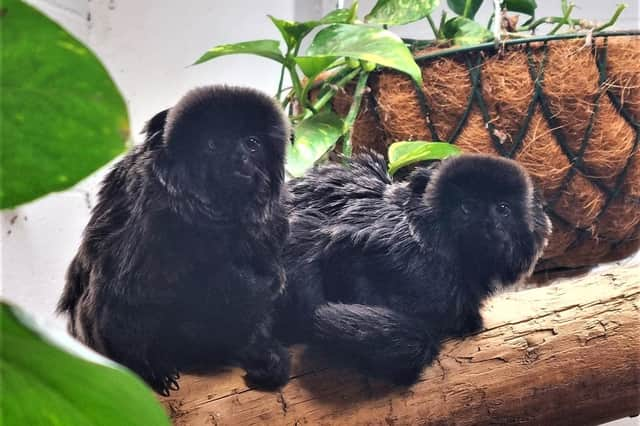Zoo playing vital role in protecting endangered monkeys


The Kirkley Hall based team are managing the European Endangered Species Programme (EEP) for its Goeldi’s monkeys, classified as a vulnerable species due to the deforestation of its natural rainforest habitat in South America.
Breeding programmes such as the EEP aim to conserve populations of at-risk animals in captivity while safeguarding their genetic health and providing them with a viable future in the wild through in-situ conservation and education.
Advertisement
Hide AdAdvertisement
Hide AdSteven Sykes, animal centre resource manager, said: “We are so happy to have been approved for the Goeldi’s European Endangered Species Programme.
“We now have a male Goeldi’s monkey called Bamboo, aged eight, from the Five Sisters Zoo in Scotland and Emily, aged 10, from Blackpool Zoo.
"We hope they will contribute to the population held in captivity and raise awareness of these stunning primates while helping to conserve the wild population and their habitat.”
The zoo not only supports and manages the 150 species in its care and those of other zoos, but also projects that have a direct effect on at-risk animal populations in their natural habitats.
Advertisement
Hide AdAdvertisement
Hide AdIn 2019 Northumberland College Zoo relocated one of its bush dogs from the UK breeding population to Japan with the hopes of starting a new breeding group.
The young male, along with a female from Twycross Zoo, became the first breeding pair of bush dogs in Japan and successfully boosted the country’s captive population by fathering some strong and healthy pups.
In the last two years the zoo has also increased its population of dart frogs, with more than 20 juvenile amphibians being donated to college zoos across the country to benefit their collections.
Successful breeding successes also including parma wallabies, Von der Decken’s hornbills and Edward’s pheasants.
Advertisement
Hide AdAdvertisement
Hide AdAmong the endangered species cared for at the zoo are lemurs, squirrel monkeys, tortoises, gecko’s and tamarins.
Lee Lister, vice principal for quality and curriculum, added: “It is essential for students to see conservation in action and the zoo is a pivotal resource in providing outstanding education for students of all levels.”
Northumberland College Zoo is due to reopen in February.